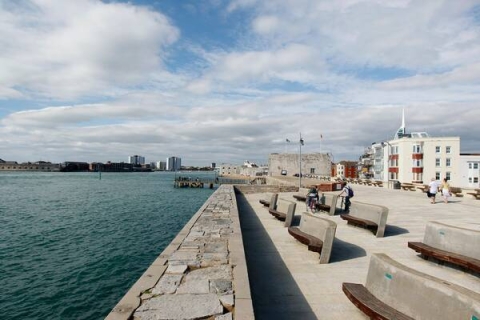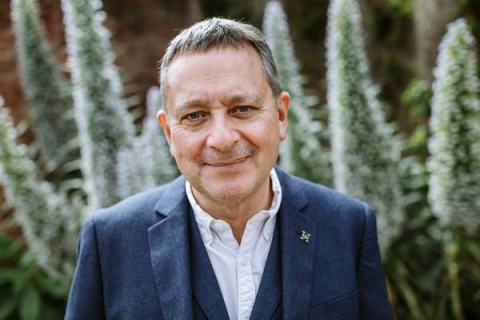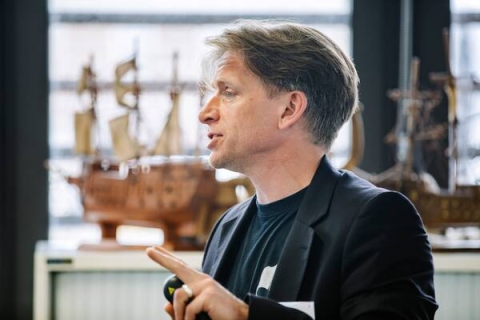

New research centre launches to focus on improving the lives of people who live in cities and towns that have for centuries relied on maritime industries.
27 September 2023
3 minutes
Learning from the past to make a better future for coastal communities. That’s just one aim of the new Centre for Port Cities and Maritime Cultures that launches today at the University of Portsmouth. Focused on improving the lives of people who live in cities and towns that have for centuries relied on maritime industries, and enhancing the environments that surround their homes and work places, the Centre is being launched on World Maritime Day.
The Centre is both international and interdisciplinary. Bringing together over 40 academics and students from the University and across the world it will undertake research that explores the past, present and future of urban-maritime cultures and communities. It will build upon, the international reputation and work of two former research groups at the University of Portsmouth: Port Towns and Urban Cultures, and Supernatural Cities.
It is timely and exciting to launch our new Centre on World Maritime Day. Our work is inherently international, and we are pleased to work with researchers from the United States to Japan to better understand port cities and maritime cultures. The Centre also has a strong commitment to civic engagement and we will continue to work with local communities on exploring the rich history and heritage of the coastal regions.
Professor Brad Beaven, Co-director of the Centre for Port Cities and Maritime Cultures

Professor Brad Beaven
The launch of the Centre coincides with a growing interest in coastal communities and maritime affairs. It is also home to two internationally recognised publications - Coastal Studies and Society (a Sage journal) - and the Palgrave Macmillan book series, Global Studies in Social and Cultural Maritime History. The Centre’s research interests also engage with growing concerns about the social and economic deprivation of seaside towns following the findings of the Chief Medical Officer’s Annual Report 2021 on Health in Coastal Communities.
The Centre for Port Cities and Maritime Cultures has four themes:
- Construction and experience of urban maritime cultures
- Representations of urban-maritime spaces and cultures
- Coastal communities and maritime heritage
- Conservation of tangible and intangible heritage
Professor Brad Beaven, Co-director of the Centre for Port Cities and Maritime Cultures, said: “It is timely and exciting to launch our new Centre on World Maritime Day. Our work is inherently international, and we are pleased to work with researchers from the United States to Japan to better understand port cities and maritime cultures. The Centre also has a strong commitment to civic engagement and we will continue to work with local communities on exploring the rich history and heritage of the coastal regions.”
Coastal communities are diverse and fascinating places, full of stories and myths. We will be working with interdisciplinary researchers and local communities to capture that complexity and intangible heritage before it disappears. We will also use that intangible heritage, history, and folklore as inspiration for exciting collaborations with writers, artists, film makers, and other creatives.
Dr Karl Bell, Co-director of the Centre

Dr Karl Bell
Dr Karl Bell, Co-director of the Centre, added: “Coastal communities are diverse and fascinating places, full of stories and myths. We will be working with interdisciplinary researchers and local communities to capture that complexity and intangible heritage before it disappears. We will also use that intangible heritage, history, and folklore as inspiration for exciting collaborations with writers, artists, film makers, and other creatives.”
The Centre’s rich research culture in urban and maritime history was a key factor in securing Dr Zack White’s three-year Early Career Fellowship from the Leverhulme Trust. His research project is called “Sepoys and Slave Seamen: Race, Empire and the Law in British India, 1795-1830.”
To accompany the Centre launch a new website has been created here.
If you would like to find out more about the Centre, please follow twitter.com/@UoP_Maritime or email us at pcmc@port.ac.uk .
